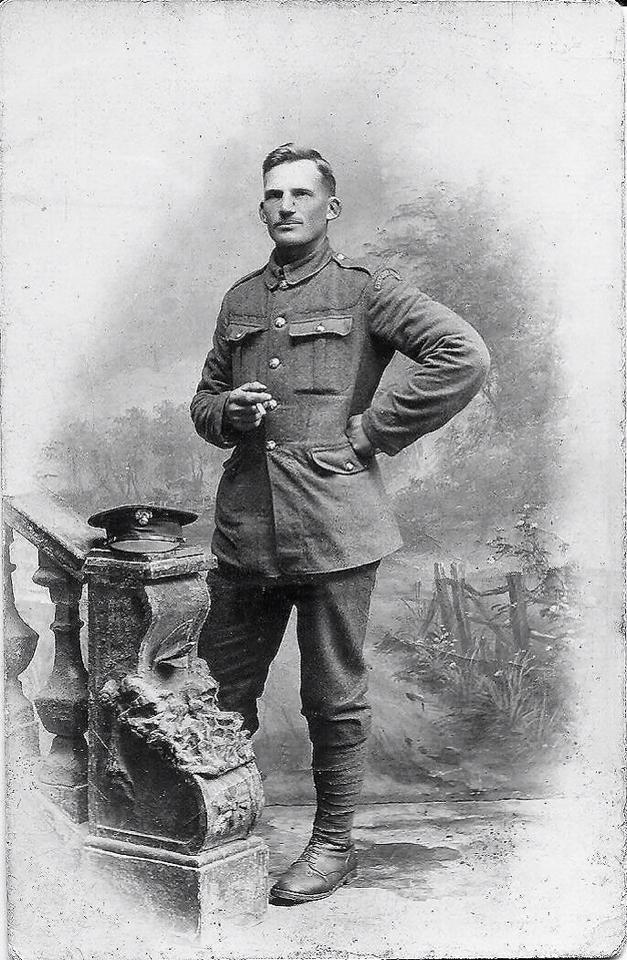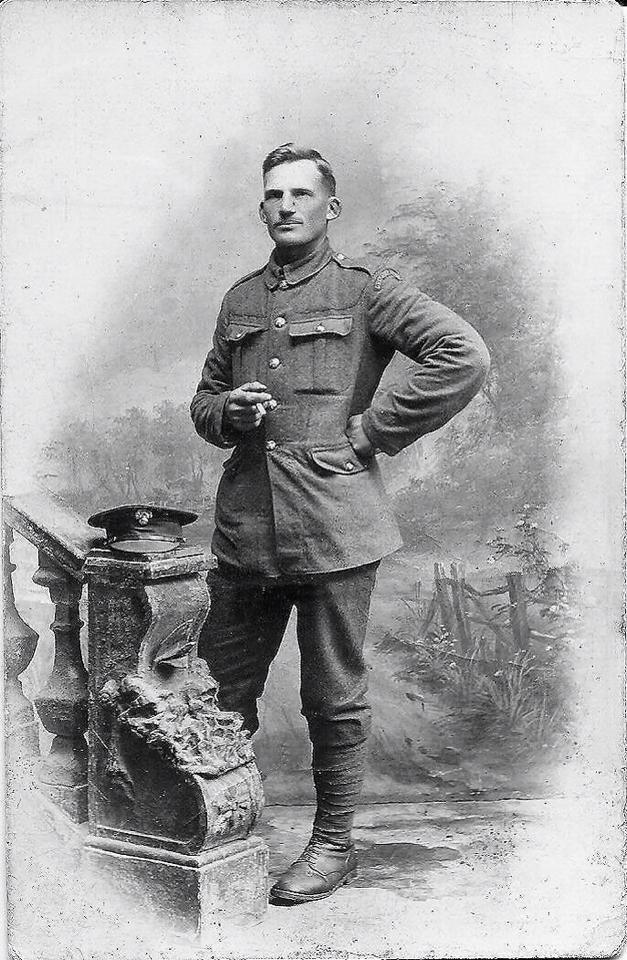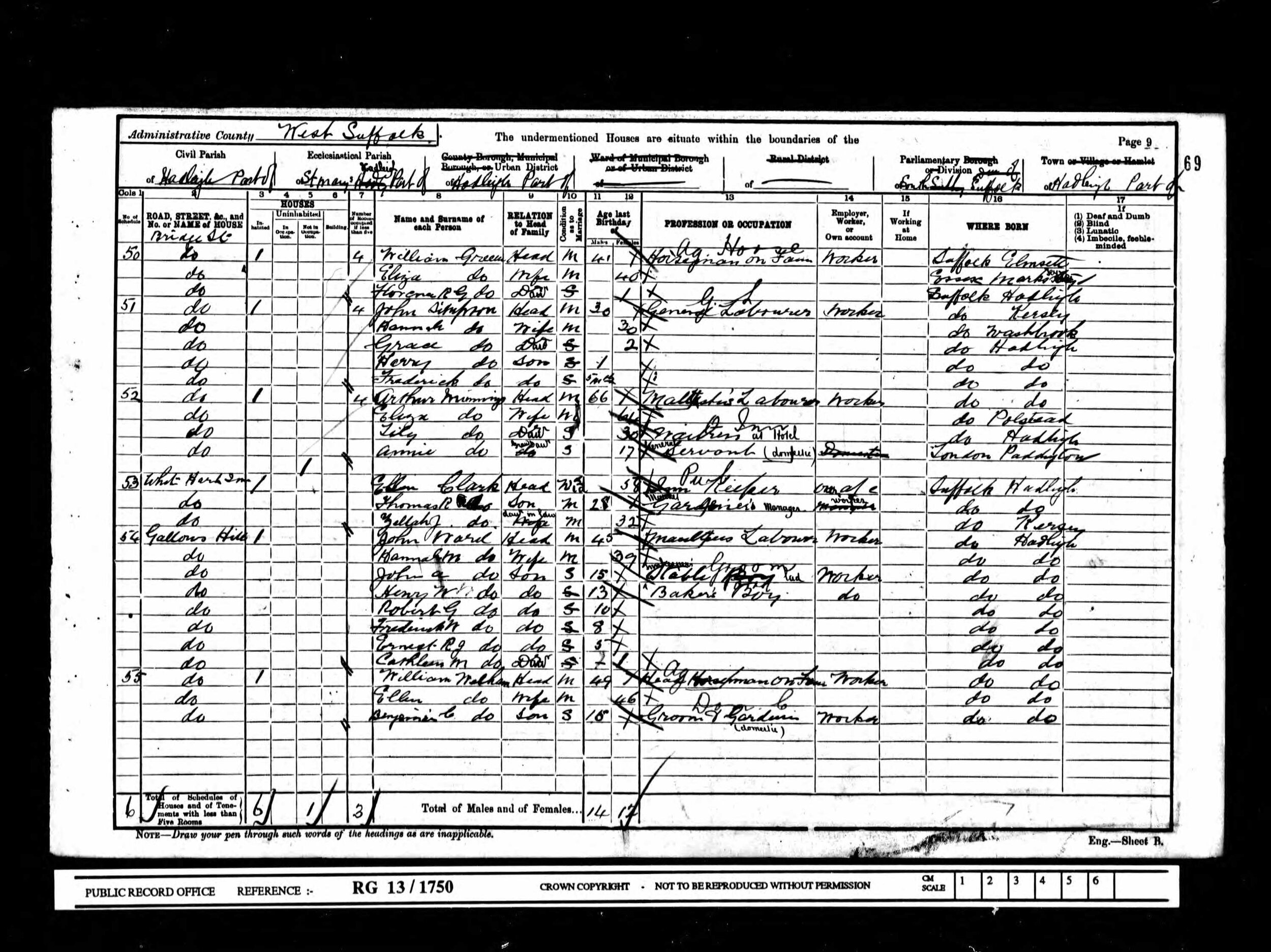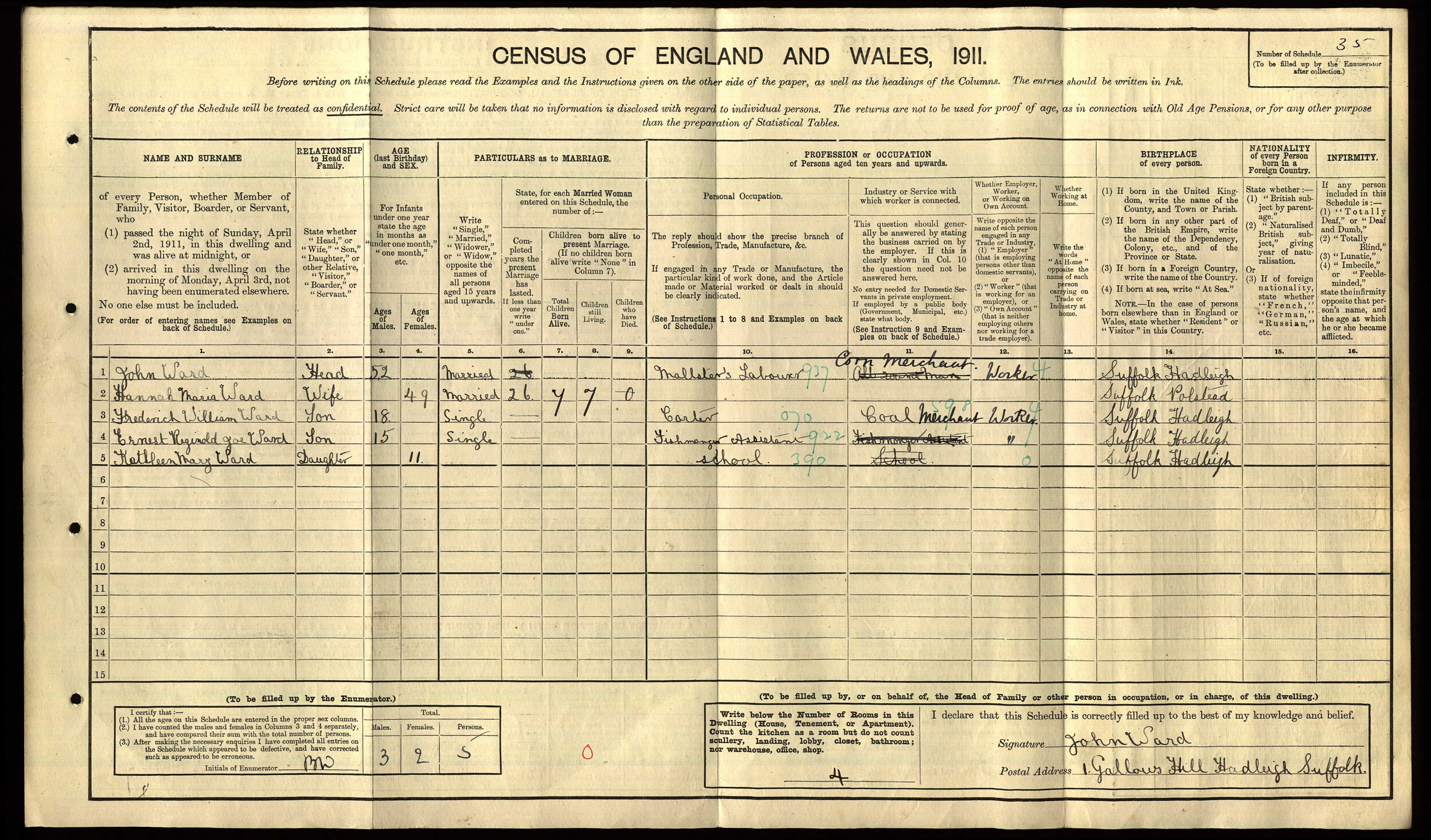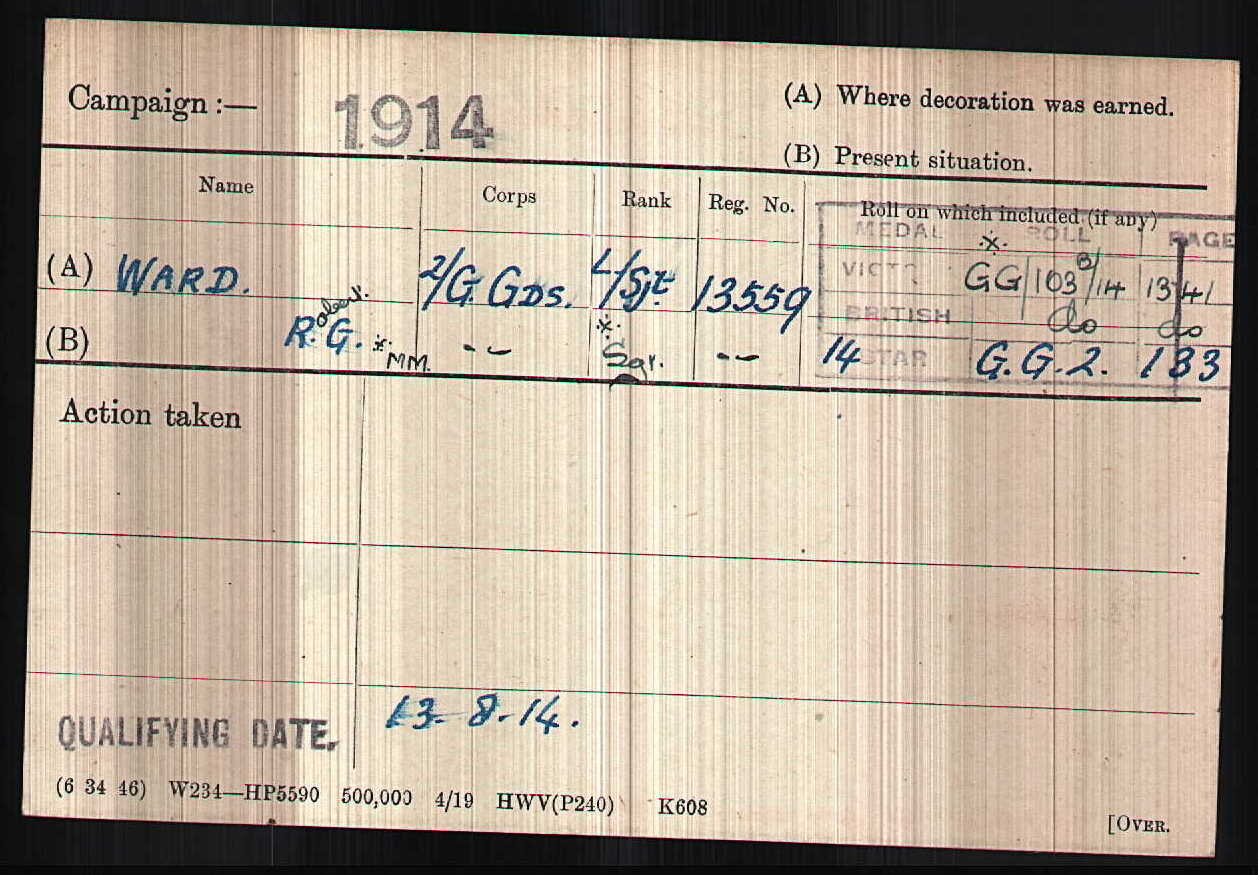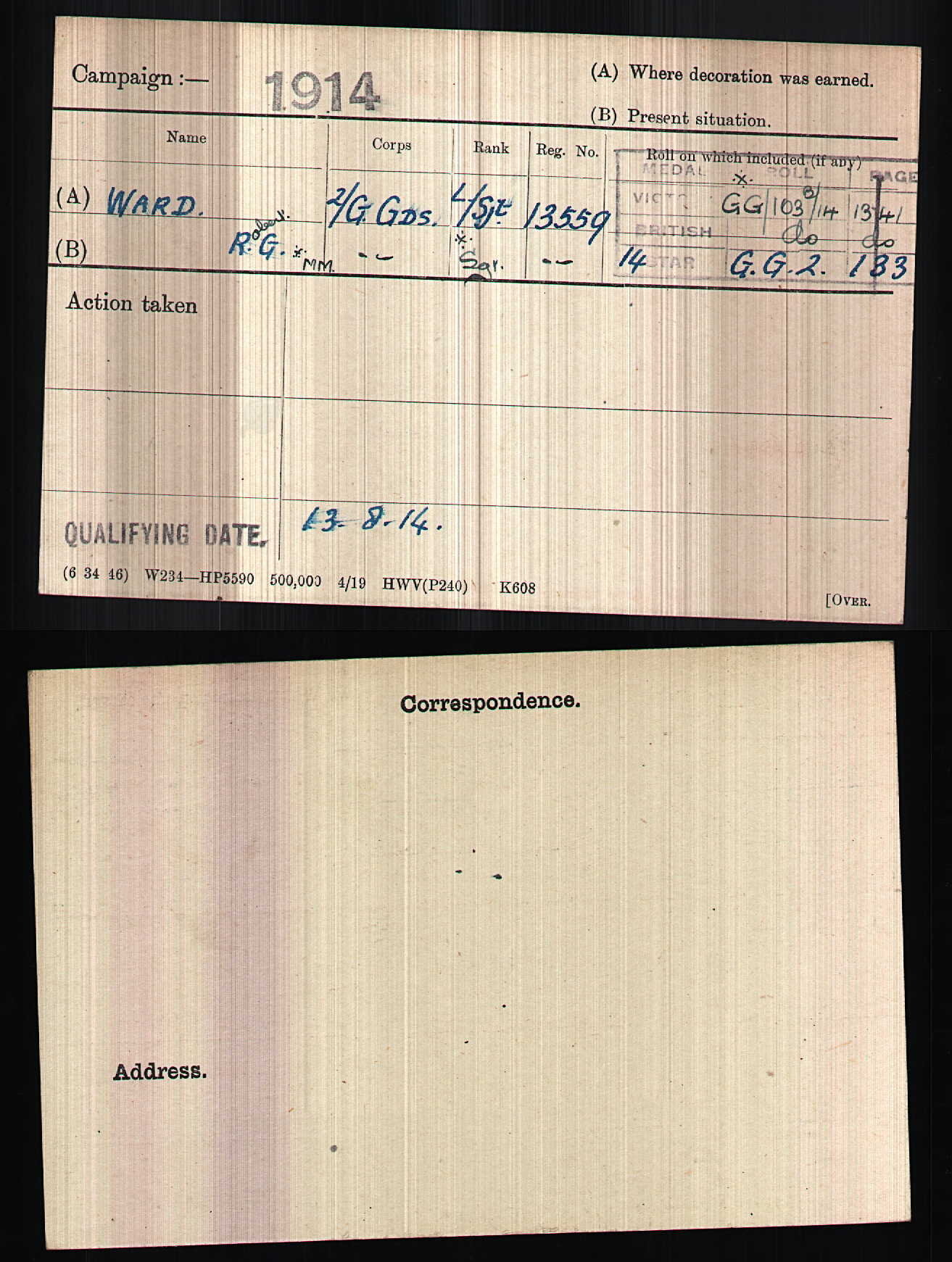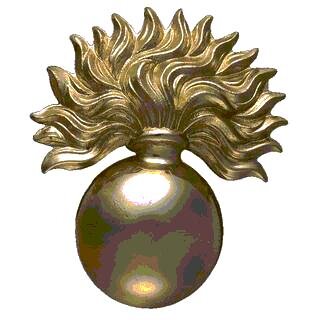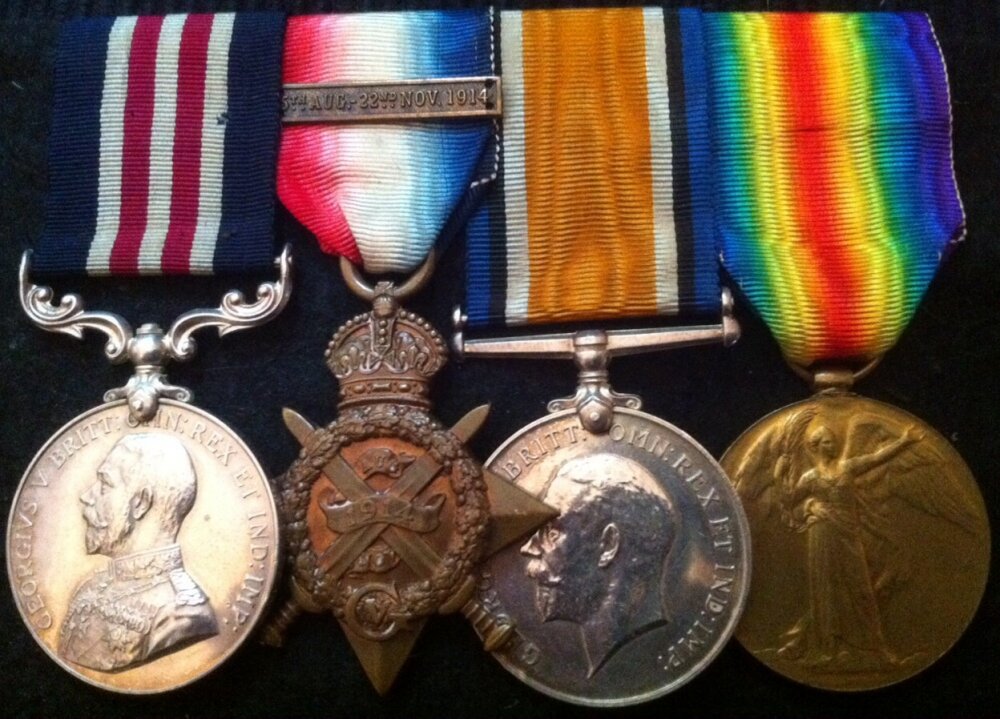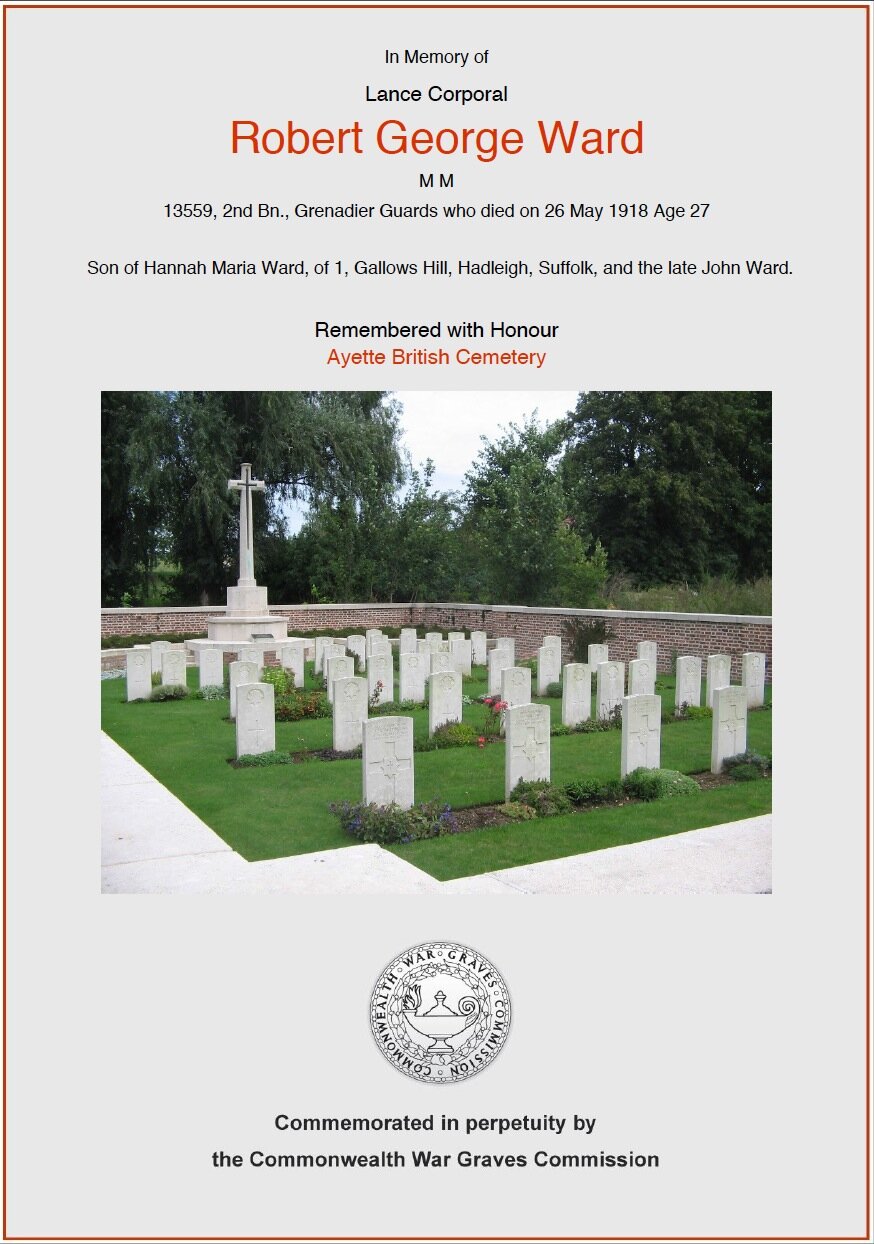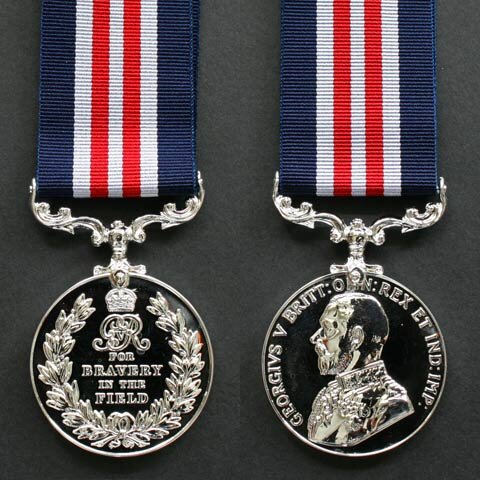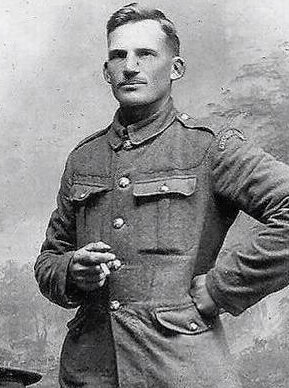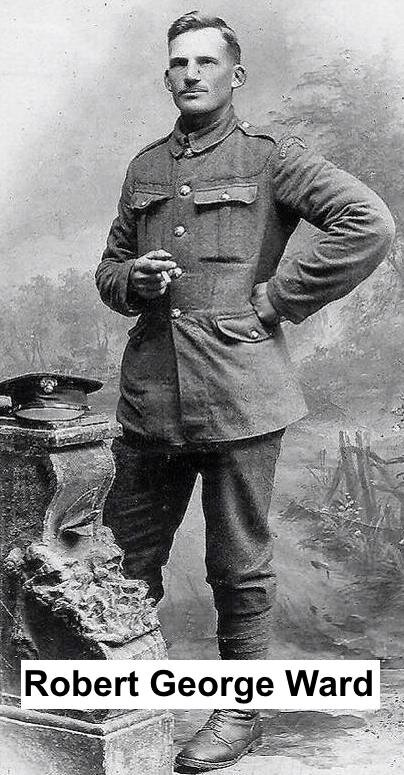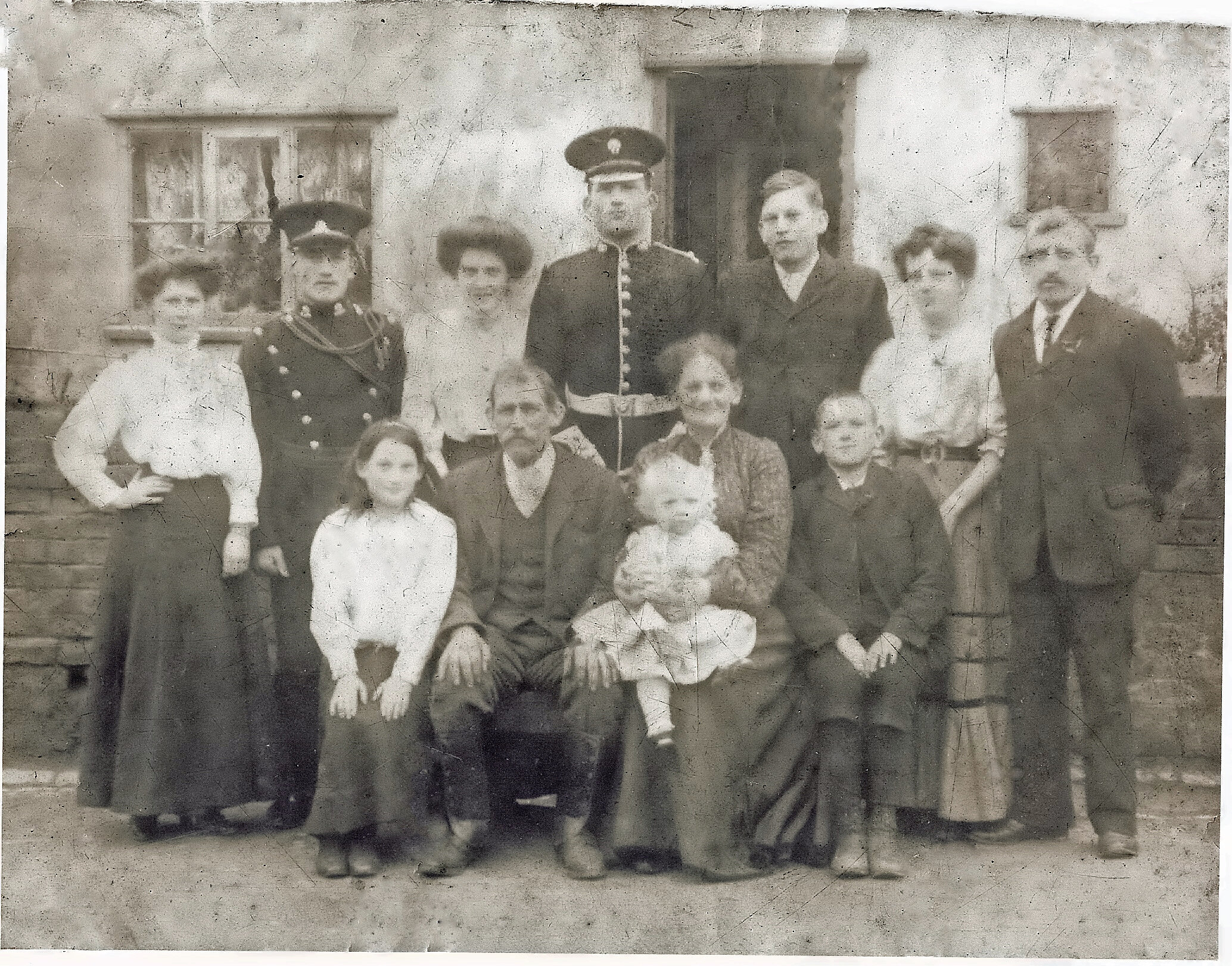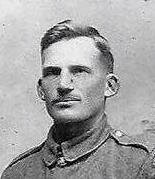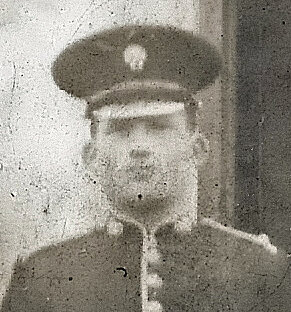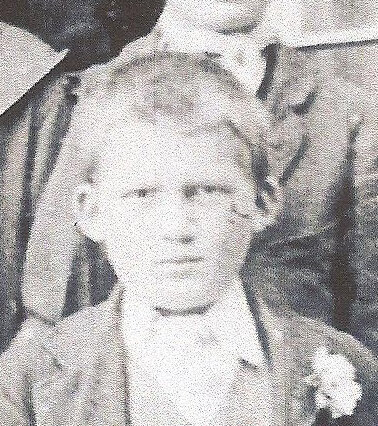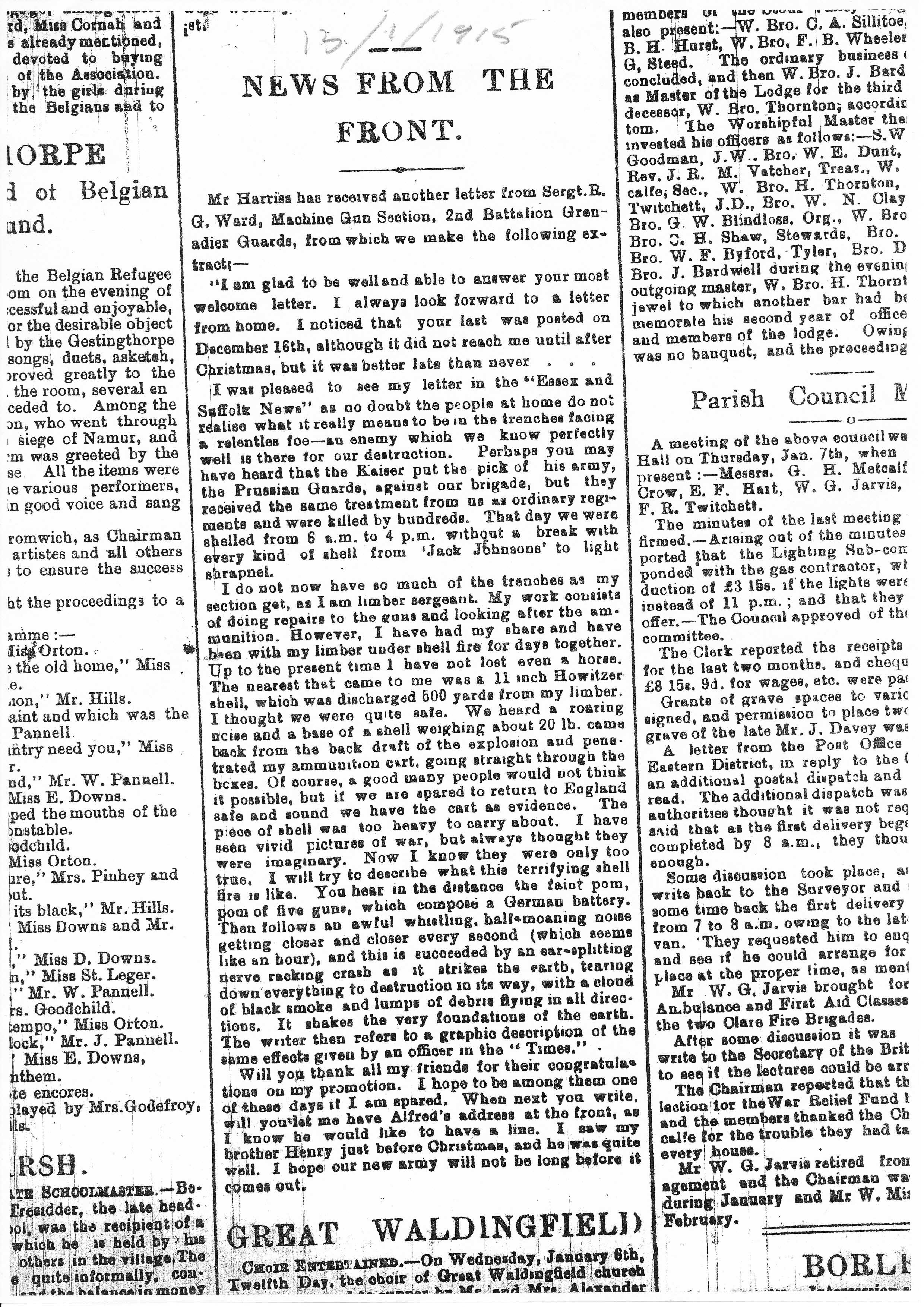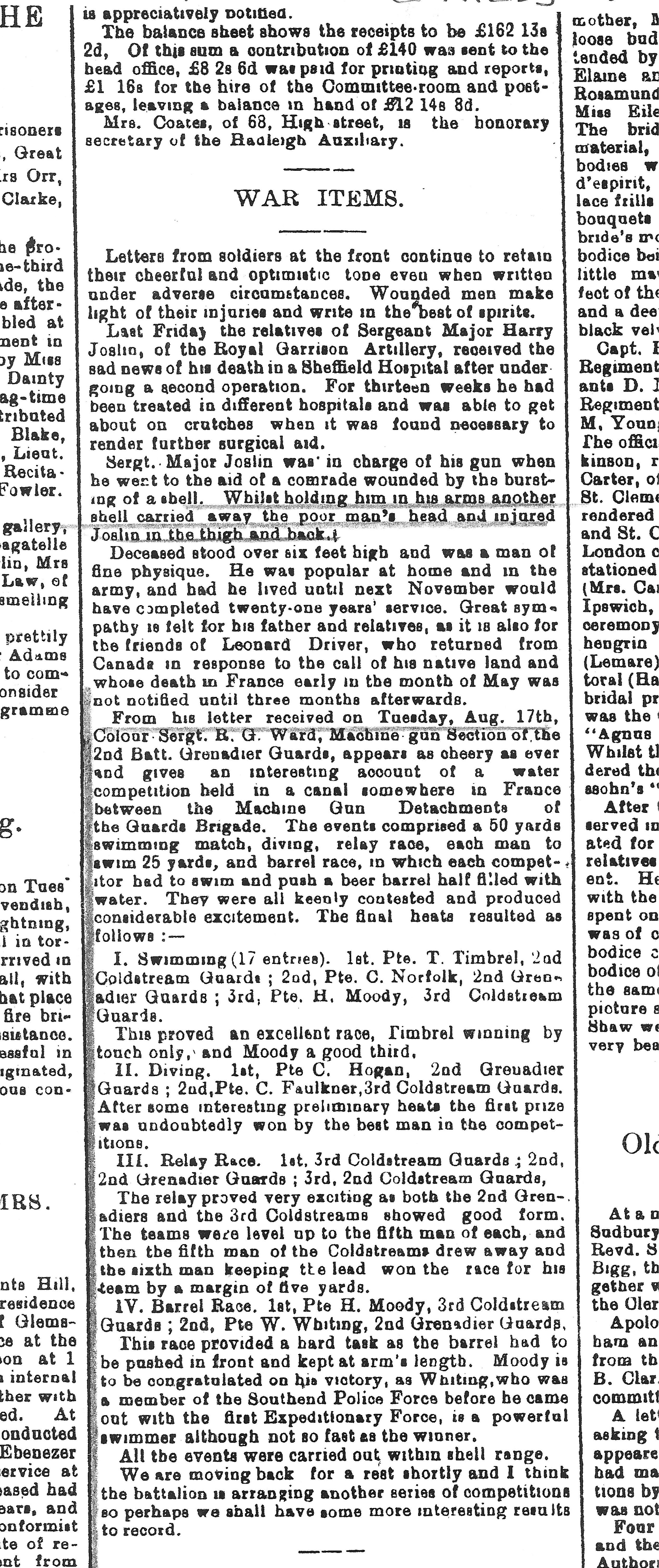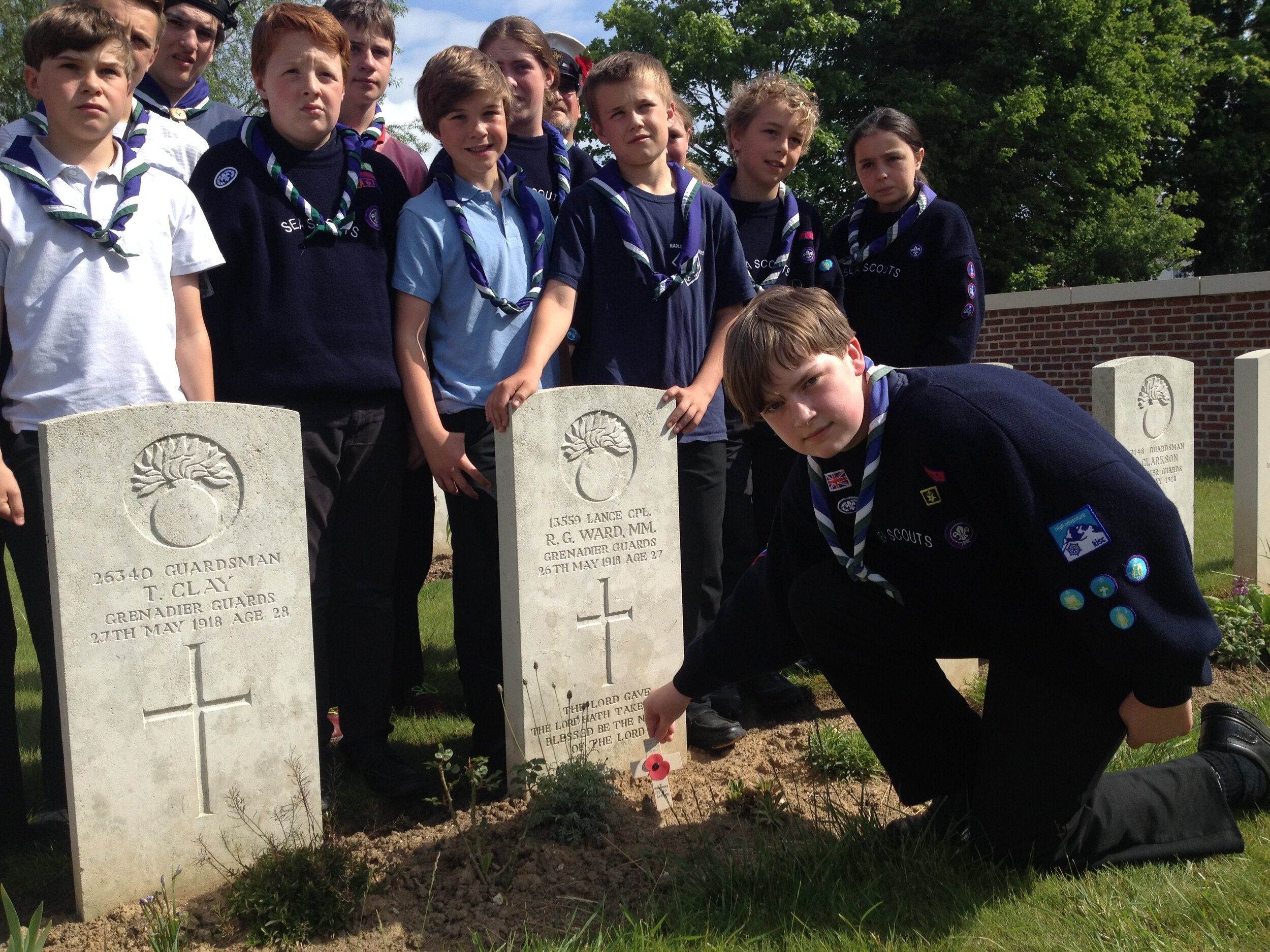Robert George Ward MM
Rank: Lance Corporal
Service Number: 13559
Date of Birth: 27 August 1890
Regiment: 2Bn Grenadier Guards
Date of Death: 26 May 1918
Age at death: 27
Cemetery / Memorial: Ayette British Cemetery
Country: France
Grave / Reference: D.6
Relatives: Son of Anna Maria Ward and the late John Ward
Address: 1 Gallows Hill, Hadleigh
Robert was born in Hadleigh in 1890. The 1901 Census report him as being aged 10 and living at 1 Gallows Hill with his parents John (42) and Hannah Maria (39) and his siblings; John A (15), Henry W (13), Frederick (8), Ernest (5) and Kathleen (1). By 1911, Robert and brothers John and Henry had left home. John had married Alice Carter and moved to 5 Calais Street and Henry and Robert had both joined the Army.
Robert joined the Grenadier Guards on 15 January 1908 giving his age as 18 years and 4 months. In actual fact he was a year younger. He initially enlisted for 3 years and his enlistment record shows that he was 5ft 11 and 1/2 inches tall, he weighed 177 lbs and had a 40 inch chest. For 1908 he was a formidable fellow for a 17 year old.
Lance Corporal Robert George Ward
Robert Ward had a lengthy military career and was in the habit of writing letters home to Mr Harris, his old school master at Bridge Street Boys School. Mr Harris would often publish excerpts from these letters and others that he received in the local newspapers. These newspaper articles along with other records found have allowed us to fill in many gaps in our research and have helped us to tell the story.
Robert made an excellent start to his military career and was promoted to Lance Corporal on 22 June 1908. He then extended his length of service to 7 years. However, on 16 September that same year, he reverted back to the rank of Private at his own request. We do not know why, perhaps it was his inexperience. Is record goes on to show that he was promoted back to Lance Corporal a few years later on 12 August 1912, to Corporal on 4 January 1914, to Lance Sergeant on 13 June 1914 and to Sergeant on the 28 November 1918, while on active service in France.
At the outbreak of war Robert was serving with the 2 battalion the Grenadier Guards based at Chelsea. The 2nd battalion were part of the 4th (Guards) Brigade of the 2nd Division. They were quickly mobilised and the battalion landed at Le Harve on the 15 August 1914. Although Robert's 'Medal Index Card' states that he landed on the 13th.
This school photograph from 1901 shows the head master Mr Harris on the left and Robert Ward on the right of the second row. Even at 11 years old, Robert was boy of great stature standing head and shoulders above his peers.
The battalion was involved in the opening engagements of the war and took part in the 'Retreat from Mons' where they suffered many casualties. The following weeks saw the 'Race to the Sea' battles and the establishment of the Western Front and the Ypres Salient. When the First Battle of Ypres closed and the winter of 1914 / 1915 set in, only 4 officers and 140 men remained of the original battalion.
When the 2nd Battalion landed in France they were part of the 4th Guards Brigade in the Second Division. In August 1915, there was a reorganisation and they joined the newly formed 1st Guards Brigade in the Guards Division.
The battalion took part in the Battle of Loos and on 25 September 1915 during which Robert received a gunshot wound to the leg and was transferred to a hospital in Exeter. By mid November he was at home recovering from his injuries. While at home he visited his old school on Bridge Street and donated five battlefield relics to the school museum. (We know the school kept a small museum, but we have found no evidence of any artefacts).
Robert did not return to his unit in France until 28 August 1916 and according to his service record he was disciplined and reduced to the ranks for inefficiency on 7 November 1916. We do not know exactly what he did wrong. However by 15 December 1917 he was promoted to Lance Corporal and by March of 1918, newspaper articles referred to him as a Sergeant and so he must have recovered his good record.
Also in March 1918, an announcement appeared in the London Gazette on the 15th to report that Robert had been awarded the Military Medal (MM). To date we have not been able to find a citation for this award, but it could take up to six months between the event and the award and so it is possible that Robert received this for gallantry in late November at either Cambrai or Gouzancourt.
Robert also sent a letter home in March 1918 with the photograph of himself. The photo must have been taken before December 1917 as it does not show any rank. In the letter, Robert also refers to a meeting with his brother Henry who was serving with the 16th Lancers. It also mentions his other brother Frederick who was serving with the 5th Suffolks and who was in a convalescence camp in Cairo.
Robert was killed in action on 26 May 1918 near Ayette in Northern France. He was buried at Ayette British Cemetery, plot D.6. The cemetery is a quite small and contains just 54 burials. The cemetery was created by fighting units from March to June 1918.
The report on his death in the E & SFP of June 5th 1918 describes him as a fine upstanding soldier of powerfull physique who had several years service. A man of resolute will and upright integrity with decided views on right and wrong, kind of heart, generous in disposition, a good son and brother.
This high opinion was endorsed by Rev. C.F. Lyttleton chaplin to the Grenadiers who in a letter to Mrs Ward stated he knew him well and that he was a regular attender of services and was a real support and influence in this way.
Death was said to be instantaneous. The War Diary of the 2nd Battalion Grenadier Guards for the 26th May 1918 reads:-
“Front area barraged for about 20 minutes at 12.30pm, 2.45pm and 3.20pm. One post suffered a direct hit which killed or wounded every occupant.
Our guns still shooting short - one shell killed a Corporal, others only just escaped doing further damage. Everybody much exasperated. Casualties 3 killed 6 wounded.”
It seems most likely the Corporal was Robert George Ward.
His medals were received by his mother. The Military Medal in Sept 1918, the 1914 Star on 19th March 1919 and the British War and Victory medals on 18th April 1921.
Lance Corporal Ward's Medals
In 2015, the Hadleigh Great War Centenary Project took a group of Hadleigh Sea Scouts on a battlefield tour of the western Front. While in the Somme region, the group visited the grave of Robert Ward and placed a poppy cross in his memory.

